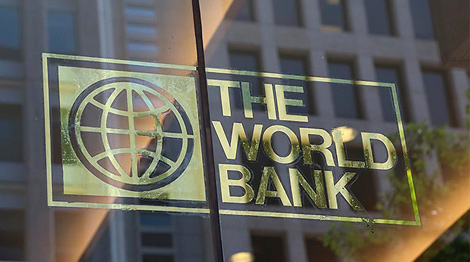Business news
World Bank revises Belarusian economy growth forecast upwards in medium term
 MINSK, 19 April (BelTA) – The World Bank has improved its forecast concerning the growth of the Belarusian economy in 2018, 2019, and 2020, BelTA learned from World Bank representatives during the presentation of another World Bank Economic Update on Belarus on 19 April.
MINSK, 19 April (BelTA) – The World Bank has improved its forecast concerning the growth of the Belarusian economy in 2018, 2019, and 2020, BelTA learned from World Bank representatives during the presentation of another World Bank Economic Update on Belarus on 19 April.
Thus, Belarus’ GDP growth is expected to hit 2.9% in 2018, 2.7% in 2019, and 2.5% in 2020, up from 2.1%, 2.4%, and 2.4% respectively.
The improving external environment, including the situation in Belarus’ main trade partners and rising prices for raw materials, fueled the growth of the Belarusian economy in 2017 due to positive dynamics in the production sector. Rising real salaries and investments in the public sector helped restore the domestic demand. Economic challenges in the medium term will be related to the need to raise external funding and address internal structural vulnerabilities.
On 19 April the World Bank also presented an evaluation of Belarus’ national wealth on the basis of the World Bank’s report Changing Wealth of Nations 2018. The report measures the national wealth of 141 countries taking into account the evaluated produced capital, natural capital, human capital, and net foreign assets. A national wealth is an important indicator of economic development, which reflects how the country’s accumulated assets will contribute to long-term economic growth.
The World Bank economist Kirill Gaiduk noted that Belarus has a good combination of national wealth components in comparison with countries, which income is above average. Belarus is ahead of Ukraine and Moldova in terms of human capital. “Yet the accumulation of material capital has been accompanied by worsening dynamics of net foreign assets,” explained Kirill Gaiduk. “Belarus should bolster the national financial system and rely less on external borrowing. Belarus should increase export and enhance the economic institutions, which foster the more effective use of the accumulated physical and human capital.”
BelTA reported earlier that the International Monetary Fund (IMF) has also revised its forecast on Belarus upwards. The IMF expects Belarus’ GDP to grow by 2.8% in 2018 and by 2.4% in 2019.
Belarus has been a World Bank member since 1992. Since then the World Bank has lent $1.7 billion to Belarus. At present the World Bank’s investment portfolio in the country includes eight projects worth $790 million.







 print version
print version make home page
make home page add to bookmarks
add to bookmarks

